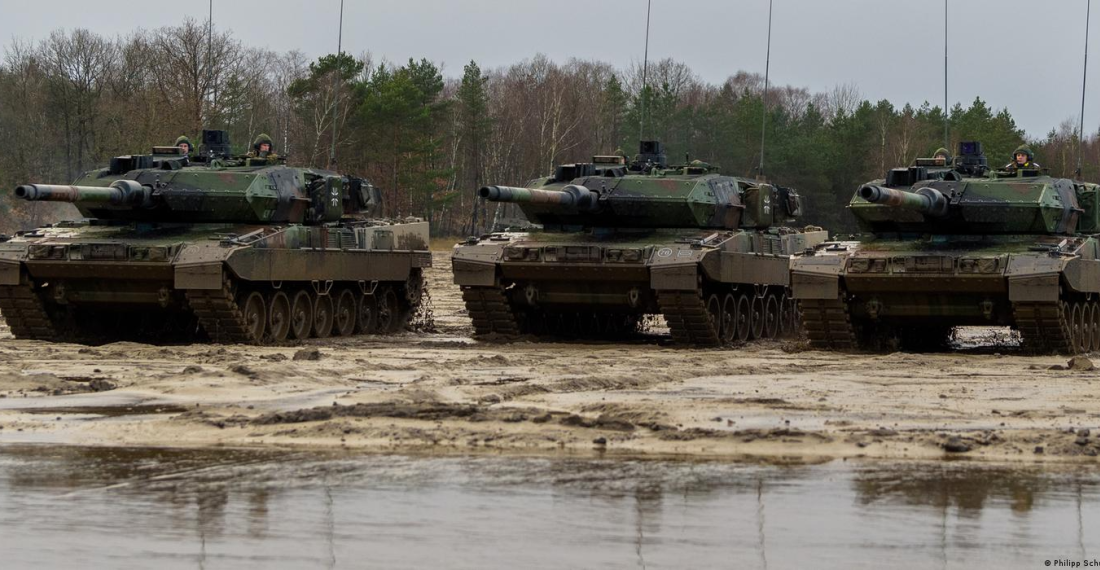Poland has officially asked Germany for permission to send some of its German-made Leopard 2 tanks to Ukraine, the Polish Defence Minister announced in a tweet on Tuesday morning (24 January).
In a tweet, Mariusz Blaszczak wrote: "The Germans have already received our request for consent to the transfer of Leopard 2 tanks to Ukraine. I also appeal to the German side to join the coalition of countries supporting Ukraine with Leopard 2 tanks. This is our common cause because it is about the security of the whole of Europe!''
Germany has come under increasing pressure in recent weeks to either supply Ukraine with its Leopard 2 tanks, or at least approve other countries' re-export of them.
German Foreign Minister Annalena Baerbock had said on Sunday (22 January) in an interview with French television that she would not "stand in the way" of Poland if it wanted to sent its Leopard 2 tanks to Ukraine.
On his part, German Defence Minister Boris Pistorius said on Tuesday morning that Berlin had yet to decide on the delivery of combat tanks to Ukraine, saying that "There is no news that I can deliver at this point. I have said that shortly a decision will be made and I can only assume that will be the case."
Although Germany has not yet approved the re-export of its Leopard 2 tanks, Pistorius said that Berlin would not be opposed to countries starting to train Ukrainian soldiers on them.
The Leopard 2 first came into service in 1979, has a top speed of 68km/h (42mph), and a maximum range of around 500km (311 miles). They are specifically designed to compete with the Russian T-90 tanks, which Moscow has been using during its full-scale invasion.






